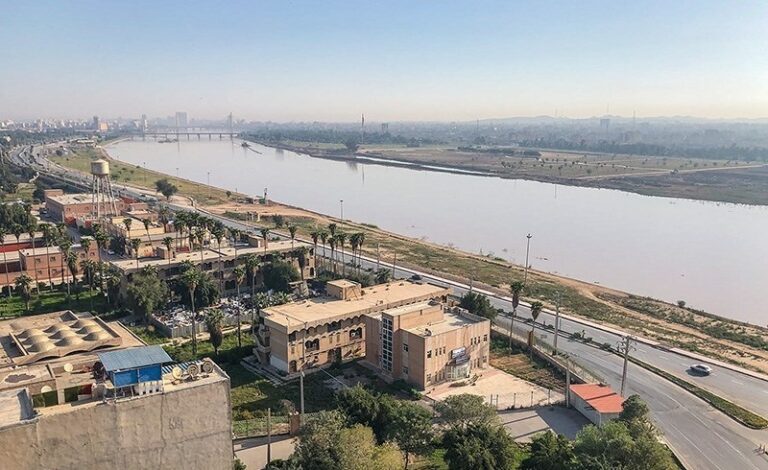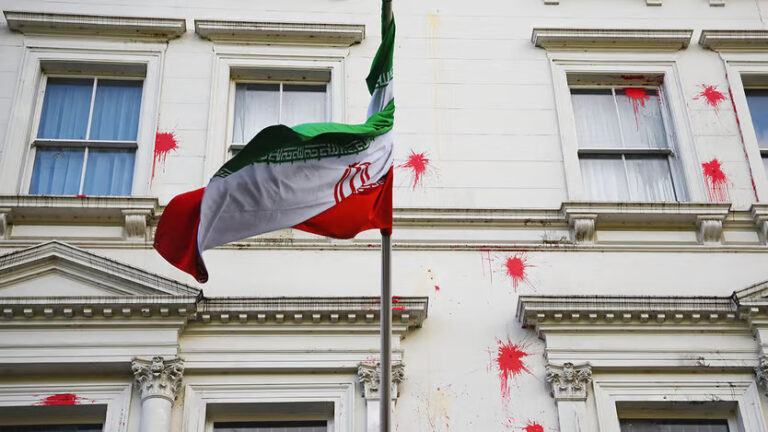TEHRAN (Agencies)
Iranian President Mahmoud Ahmadinejad has fired Foreign Minister 
Manouchehr Mottaki, the official IRNA news agency reported on Monday, without giving reasons. “I thank you and appreciate the work and the services you have rendered during your tenure in the foreign ministry,” Ahmadinejad was quoted as saying in the directive carried by IRNA. “I hope your efforts receive a praise by God and you will be successful in the rest of your life at the service of people of our Islamic nation,” he added.
Mottaki, a career diplomat, was appointed to the post of foreign minister in August 2005. He is currently in Senegal on an official visit.
A fluent speaker of English who is also comfortable in Urdu and Turkish, Mottaki earned a degree in social sciences from the University of Bangalore in India and a graduate degree in international relations from Tehran University in 1991.
Downgrading ties with Britain
Meanwhile Iranian lawmakers have called on the government to downgrade its relations with Britain for interfering in the Islamic state’s internal affairs, state media reported.
Britain is at odds with Iran over its disputed nuclear program, and has frequently been accused by Tehran of meddling and fomenting anti-government protests in the country following the disputed presidential election in 2009.
“Iran will lose nothing from downgrading relations with Britain … this is the minimum cost that London should pay for confronting the Iranian nation,” lawmaker Kazem Jalali told state television.
Jalili, who is spokesman for parliament’s National Security and Foreign Affairs committee, said it would review ties with Britain on Sunday. However, the committee’s decision would depend on the outcome of voting in parliament.
Jalili also criticized the “impudent” behavior of the British Ambassador to Iran, Simon Gass.
“Gass wrote about violation of human rights in Iran … ignoring the killing of students in Britain in recent protests,” said Jalili. Some MPs have demanded that Gass be thrown out of the country.
While some students were injured in sometimes violent demonstrations in London and other British cities over the past month in protest against higher tuition fees, none has been killed.
Another lawmaker, Hamid Rasai, called the British embassy “a nest of spies”, a term usually used to refer to the former U.S. embassy in Tehran seized by hard-line students shortly after the 1979 Islamic revolution.
“There is no difference between America and Britain and their policies … we will take necessary measures to close down the embassy and to cut ties with Britain,” Rasai told a group of about one hundred hardline students outside the embassy, where they were protesting against Britain’s meddling in Iran.
The British ambassador made light of the gathering.
“Protest by a few Basiji students … Burned the Union Jack but at least got it the right way up this time,” Gass tweeted on Monday.
Gass accused Iranian authorities of depriving the nation of “their fundamental freedoms” on the embassy’s website on Dec. 9.
“Since last year human rights defenders have been harassed and imprisoned … On human rights Britain and Iran think very differently,” Gass wrote.
Britain has long had a volatile relationship with the authorities in Tehran. Iran broke off diplomatic relations in 1989 after the Islamic revolution’s late founder Ayatollah Ruhollah Khomeini called on Muslims to kill British author Salman Rushdie for blasphemy in his book “The Satanic Verses”. Ties were partially restored in 1990.
Iran’s current Supreme Leader, Ayatollah Ali Khamenei, who has the final say on all state matters, has called Britain “the most treacherous” of Iran’s enemies.
Nine Iranian staff from the British embassy were arrested and later released in June 2009, for alleged involvement in post-election unrest. The violence followed accusations by the opposition that voting was rigged to secure Ahmadinejad’s re-election. The Iranian authorities deny that electoral fraud took place.
Iran has repeatedly accused the United States, Britain and Israel of being behind two bomb attacks in Tehran on Nov. 29, one of which killed a nuclear scientists, a charge denied by London and Washington.









+ There are no comments
Add yours